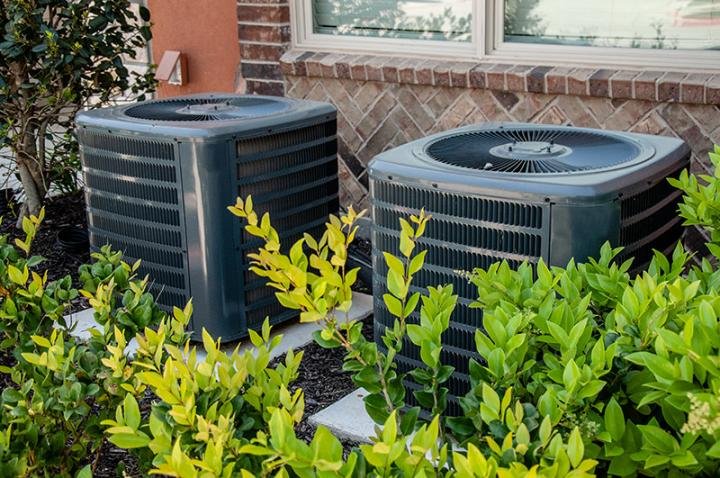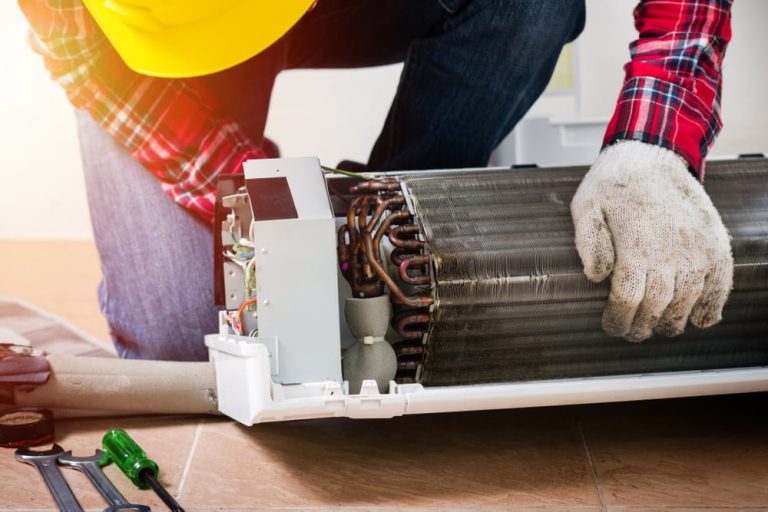Is Air Conditioner Water Safe? The Truth Revealed For Your Peace Of Mind
Yes, the water produced by an air conditioner is generally safe. However, it is important to note that the water may contain some impurities or bacteria if the AC unit is not properly maintained. Regular cleaning and maintenance of the AC unit can help ensure the water remains safe.
Have you ever wondered if the water from your air conditioner is safe? As a homeowner or someone who uses air conditioning regularly, it’s natural to be concerned about the potential health risks or contamination associated with air conditioner water. After all, maintaining a healthy and safe living environment is a top priority for most of us.
In this blog article, we will delve into the topic of air conditioner water safety and explore whether it poses any risks to our well-being. Whether you’re already familiar with the mechanics of air conditioners or just starting to learn about them, this article will provide you with the information you need to make an informed decision.
Throughout the article, we’ll address common concerns and questions about air conditioner water safety, providing you with insights backed by scientific research and expert opinions. We’ll explore the potential dangers and how to mitigate them, ensuring that you can continue to enjoy the benefits of air conditioning without compromising your health. Topics that we will cover include the potential contaminants in air conditioner water, the health risks associated with these contaminants, and the steps you can take to ensure the safety of your air conditioner water.
By the end of the article, you’ll have a comprehensive understanding of air conditioner water safety and be equipped with practical tips to maintain a healthy living environment. So, if you’ve been curious about whether the water from your air conditioner is safe, join us on this insightful journey as we uncover the truth and empower you to make informed decisions. Let’s dive in.
Understanding Air Conditioner Water
Before we dive into the topic of air conditioner water safety, let’s start by understanding what air conditioner water actually is. When your air conditioner operates, it removes heat from the air and lowers the humidity, resulting in a more comfortable indoor environment.
During this cooling process, condensation occurs as moisture in the air condenses on the evaporator coil. This condensed moisture collects in a drip pan or tray located underneath the coil. From there, it is drained through a pipe or hose, which is usually connected to a floor drain or an outdoor area.
So, the water that comes out of your air conditioner is essentially the result of this condensation process. It is important to note that air conditioner water is not the same as drinking water or tap water. It’s primarily composed of condensed moisture and may contain certain impurities or contaminants.
The Potential Contaminants in Air Conditioner Water
While air conditioner water may not be intended for consumption, it is still crucial to consider the potential contaminants that could be present. These contaminants can vary depending on various factors, such as the condition of your air conditioner, the quality of the air in your environment, and the maintenance practices you follow.
Bacteria and Mold
One of the primary concerns with air conditioner water is the presence of bacteria and mold. The damp and dark environment inside the air conditioning system provides a favorable breeding ground for these microorganisms.
If your air conditioner is not properly maintained, cleaned, or serviced regularly, it can become a breeding ground for bacteria and mold. These microorganisms can contaminate the water that collects in the drip pan and pose a potential health risk.
Chemicals and Pollutants
In addition to bacteria and mold, air conditioner water can also contain chemicals and pollutants. These substances may come from various sources, such as the outdoor environment, the air within your home, or the materials used in the air conditioning system itself.
Chemicals and pollutants that can be present in air conditioner water include pesticides, cleaning agents, volatile organic compounds (VOCs), and particles from dust or debris. While the concentration of these substances may be low, prolonged exposure or ingestion can still have adverse effects on health.
Health Risks Associated with Contaminated Air Conditioner Water
Now that we understand the potential contaminants in air conditioner water, let’s explore the health risks associated with these contaminants.
Respiratory Issues
Bacteria and mold present in air conditioner water can release spores or toxins into the air. When you breathe in these contaminants, they can irritate your respiratory system and potentially trigger allergies, asthma attacks, or other respiratory issues.
Individuals who already have respiratory conditions or weakened immune systems may be more susceptible to these effects. It’s important to note that the severity of such health issues can vary depending on the concentration and type of contaminants present in the water.
Infections and Illnesses
Exposure to contaminated air conditioner water can also increase the risk of infections and illnesses. Bacteria and mold, when ingested or in contact with open wounds, can cause infections in the digestive system or skin.
Some bacteria, such as Legionella, can even lead to serious respiratory illnesses like Legionnaires’ disease. This condition can be particularly dangerous for individuals with compromised immune systems, older adults, and those with underlying health conditions.
Ensuring the Safety of Your Air Conditioner Water
Now that you’re aware of the potential risks, let’s explore some practical steps you can take to ensure the safety of your air conditioner water.
Regular Maintenance and Cleaning
The first and most crucial step is to ensure regular maintenance and cleaning of your air conditioning system. By following the manufacturer’s guidelines and scheduling professional inspections, you can minimize the accumulation of bacteria, mold, and other contaminants.
Regular cleaning of the drip pan and drain line is essential to prevent the growth of microorganisms. Additionally, changing the air filters regularly helps maintain good indoor air quality and reduces the introduction of pollutants into the system.
Water Treatment and Filtration
If you’re concerned about the quality of your air conditioner water, you can consider implementing water treatment and filtration measures. This can include installing filters or adding disinfection systems to your air conditioning unit.
Water treatment methods, such as ultraviolet (UV) sterilizers or chemical disinfectants, can help kill bacteria and deactivate mold spores. Filtration systems, on the other hand, can help remove particles and pollutants from the water.
Regular Inspections and Testing
To ensure ongoing safety, it’s a good practice to schedule regular inspections and testing of your air conditioner water. This can involve hiring professionals to assess the water quality, check for any signs of contamination, and conduct necessary tests.
By identifying potential issues early on, you can take corrective actions promptly and prevent the situation from worsening. Regular inspections and testing provide peace of mind, knowing that you’re actively maintaining a safe living environment.
When it comes to air conditioner water, it’s important to be aware of the potential risks and take necessary precautions to ensure safety. While air conditioner water is not intended for consumption, it can still pose health risks if contaminated.
By understanding the potential contaminants, the associated health risks, and implementing proper maintenance and cleaning practices, you can minimize the likelihood of problems. Regular inspections, testing, and water treatment measures can further enhance the safety of your air conditioner water.
Remember, the key is to stay proactive and informed. By following the guidelines and taking the necessary steps, you can continue to enjoy the benefits of air conditioning while prioritizing your health and well-being.
How to UNCLOG your AC DRAIN Condensate line FAST – Water stains on Ceiling? or in the Pan
Is the water produced by an air conditioner safe to drink?
Can I use the water from my air conditioner for other purposes?
How can I safely dispose of the water from my air conditioner?
What should I do if I accidentally ingest water from my air conditioner?
Are there any health risks associated with using the water from an air conditioner?
Conclusion: Safeguarding the Safety of Air Conditioner Water through Maintenance and Precautions
In conclusion, air conditioner water is not safe for consumption due to the potential contaminants it may contain. The primary concerns with air conditioner water are the presence of bacteria and mold, which can thrive in the damp and dark environment of the air conditioning system.
These microorganisms can contaminate the water and pose a risk to respiratory health, especially for individuals with pre-existing conditions or weakened immune systems. Additionally, air conditioner water can also contain chemicals and pollutants from various sources, which may have adverse effects on health with prolonged exposure or ingestion.
To ensure the safety of air conditioner water, it is essential to practice regular maintenance and cleaning of the air conditioning system. This includes cleaning the drip pan and drain line to prevent the growth of microorganisms and changing air filters regularly to maintain good indoor air quality. Implementing water treatment and filtration measures, such as UV sterilizers or chemical disinfectants, can help kill bacteria and remove contaminants from the water.
Regular inspections and testing of air conditioner water are also recommended to identify potential issues and take corrective actions promptly. By staying proactive and informed about the potential risks and implementing necessary precautions, such as proper maintenance and cleaning practices, water treatment, and regular inspections, you can minimize the likelihood of health problems associated with contaminated air conditioner water. In conclusion, while air conditioner water is not intended for consumption, understanding the potential risks and taking necessary measures can help ensure the safety of your indoor environment.






